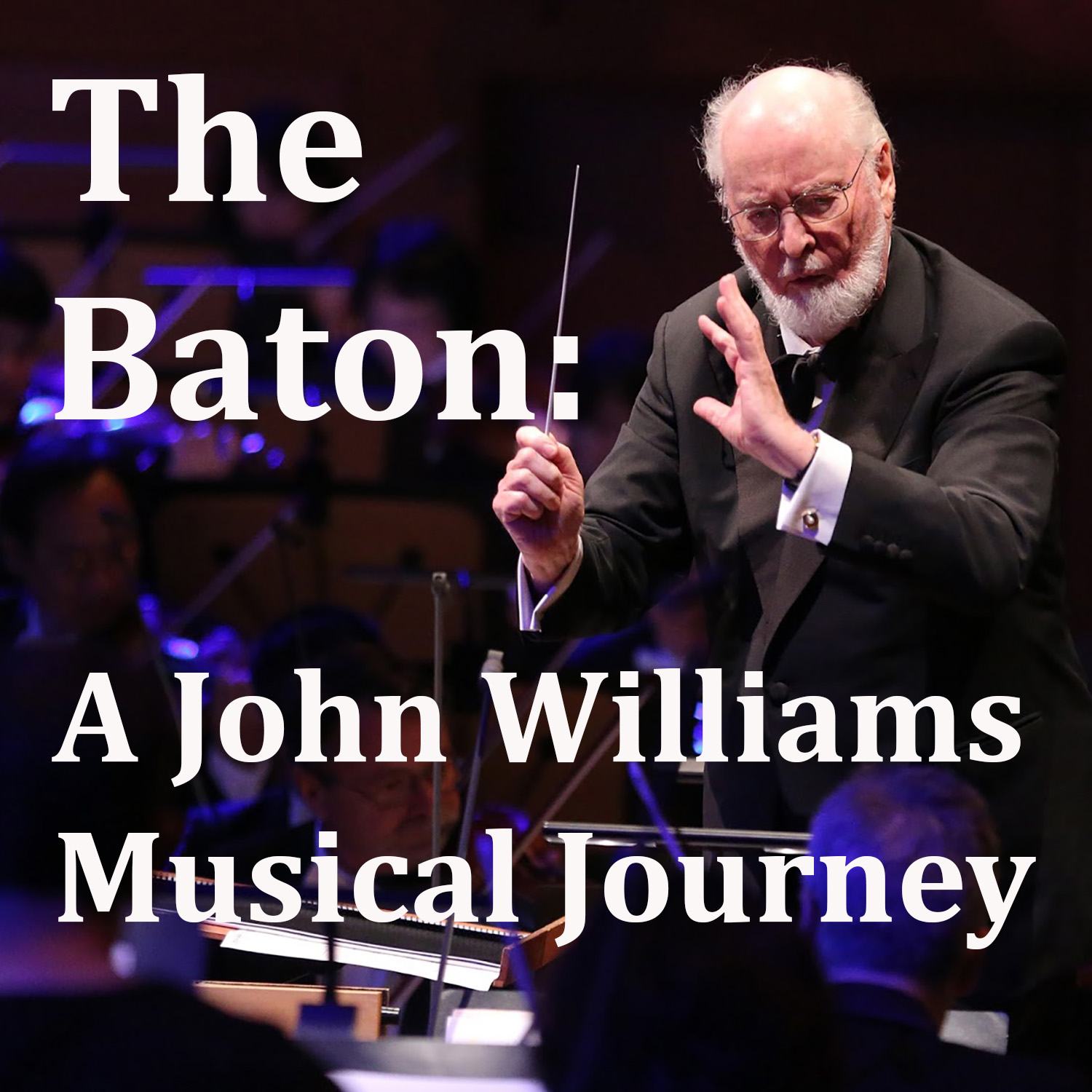Episodes
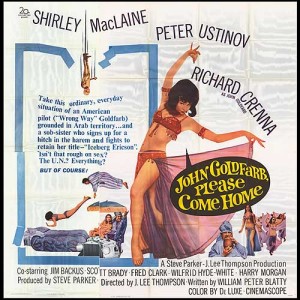
Wednesday Feb 20, 2019
Episode 11 - John Goldfarb Please Come Home
Wednesday Feb 20, 2019
Wednesday Feb 20, 2019
Technically, John Williams' follow-up to "None But the Brave" is a war film, as it deals with the U.S.-Soviet animosities during the Cold War, but it really is nothing more than pure slapstick comedy that stoops low but still strives to aim high. "John Goldfarb Please Come Home" takes the real-life incident of Francis Gary Powers crashing his U2 plane and makes lowbrow comedy out of it. What results is a low point in Shirley MacLaine's movie career, but a great effort by John Williams in his 10th film. The music in this film relies heavily on arranging the orchestra to create a Middle Eastern flavor, with some 60s punk sprinkled on top. Williams uses many musical styles throughout the film, from a quiet love theme to Keystone Kops-style antics. A major milestone of the film concerns the title song, which marks the first song co-written by Williams to appear in a theatrical film. Host Jeff Commings analyzes Williams' contributions to the film, and the court battle that nearly derailed the film's release.
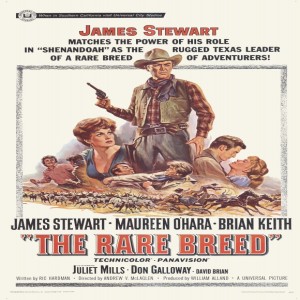
Wednesday Feb 27, 2019
Episode 12 - The Rare Breed
Wednesday Feb 27, 2019
Wednesday Feb 27, 2019
Did you know that John Williams wrote music for Westerns? The first one was the James Stewart vehicle "The Rare Breed," which features a bull named Vindicator and a sort-of British accent from Maureen O'Hara. As far as the score, it features a fine theme from Williams, and some decent moments in the relatively predictable film. This was the first of five films released in 1966 that would feature a John Williams score, and despite his busy schedule, he had the time to write his first - and only - symphony. Host Jeff Commings discusses the strange history of Symphony No. 1 and the presumed reasons why Williams only had it performed twice.
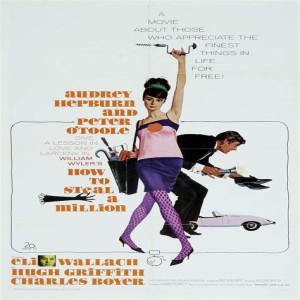
Wednesday Mar 06, 2019
Episode 13 - How to Steal a Million
Wednesday Mar 06, 2019
Wednesday Mar 06, 2019
The Audrey Hepburn art caper comedy "How to Steal a Million" was a turning point in John Williams' career, at least in the eyes of the composer himself. Host Jeff Commings explains why Williams felt this was a new chapter in his professional career, and how it shaped his life going forward. The film itself was one of the biggest successes in which John Williams was able to take part, and it's in no small thanks to the main theme that's used for many different purposes.
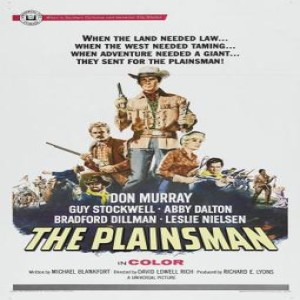
Wednesday Mar 13, 2019
Episode 14 - The Plainsman
Wednesday Mar 13, 2019
Wednesday Mar 13, 2019
Universal Pictures had two Westerns released in 1966. After the box office flop "The Rare Breed" came another underperformer, "The Plainsman." John Williams, nearing the end of his contract with Revue Studios, the TV arm of Universal, tackled this uneven film and produced very little score that is memorable after watching the film. Does the fault lie with Williams being overworked in 1966, or does it lie with the filmmakers not creating a film rich with inspiration for its composer? Host Jeff Commings examines some of the musical moments in the film, including some precursors to what Williams will do in the "Star Wars" films.
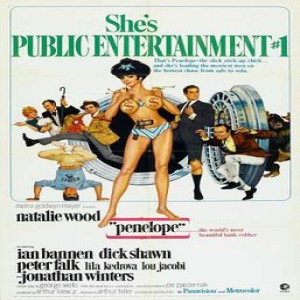
Wednesday Mar 20, 2019
Episode 15 - Penelope
Wednesday Mar 20, 2019
Wednesday Mar 20, 2019
Natalie Wood is the star of "Penelope," but the film puts so much more focus on Edith Head's costumes that it takes away from the flimsy and uneven plot. John Williams manages to compose a very good theme for the film by way of a 60s-era song that begins his longtime collaboration with the English songwriter Leslie Bricusse. Host Jeff Commings talks about the numerous permutations of the Penelope theme in this episode, as well as the history behind the making of the film and how it affected Natalie Wood's film career.
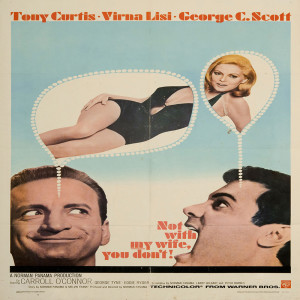
Wednesday Mar 27, 2019
Episode 16 - Not With My Wife You Don't
Wednesday Mar 27, 2019
Wednesday Mar 27, 2019
John Williams' final film score of 1966 wasn't his best work of the year, but it does contain some decent moments, including music for a bar fight and a decent love theme. His collaboration with the Oscar-winning lyricist Johnny Mercer yielded three uninspiring songs that aren't very memorable outside the film. Though this isn't the best score Williams wrote in 1966, host Jeff Commings finds some hidden gems inside the music. We'll also take a look back at the five scores from 1966 and which one deserved the most recognition.
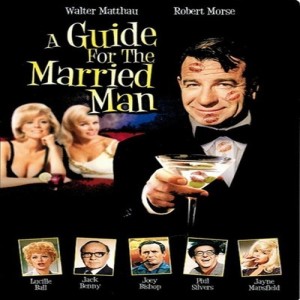
Wednesday Apr 03, 2019
Episode 17 - A Guide for the Married Man
Wednesday Apr 03, 2019
Wednesday Apr 03, 2019
After composing scores to five films in 1966 -- and writing music for a failed TV sitcom -- John Williams had only three films on his plate in 1967. On the surface, they would turn out to be no different from what Williams had done previously, but they turned out to make a big impact in moving his career forward. His first film of the year, a bedroom farce starring newly-minted Oscar winner Walter Matthau, offers John Williams fans a chance to hear him compose music of numerous styles in one film. John Williams' work is the star of "Not With My Wife You Don't," especially because his music helps out in many dialogue-free scenes such as a travelogue around the globe and a silent film homage. Because the film did not do well at the box office, the score got very little notice -- until now! Enjoy this listen to an overlooked gem in the John Williams oeuvre.
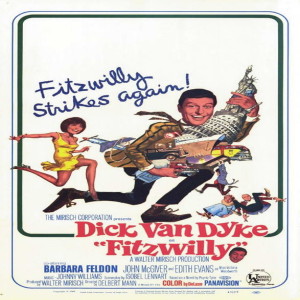
Wednesday Apr 10, 2019
Episode 18 - Fitzwilly
Wednesday Apr 10, 2019
Wednesday Apr 10, 2019
During a break in recording the score for Valley of the Dolls (the subject of the next episode), John Williams decided to take on a comedy film starring Dick Van Dyke fresh off his eponymous TV show. "Fitzwilly" featured a stately comic main theme for the main character, a butler who moonlights as a thief to fund his employer's bank account. Williams also composed a decent love theme, made into a song by the soon-to-be-famous team of Alan and Marilyn Bergman. This film also marked the final time Williams would be credited as "Johnny Williams" onscreen, and his final comedy for 12 years. Host Jeff Commings analyzes the top moments in the score as we say goodbye to Williams' very impressive comedy film era.
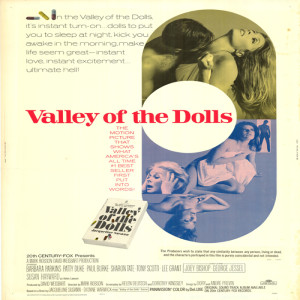
Wednesday Apr 17, 2019
Episode 19 - Valley of the Dolls
Wednesday Apr 17, 2019
Wednesday Apr 17, 2019
The 1967 film "Valley of the Dolls" was, on the surface, like any other assignment John Williams had in his early film scoring career. His task was to adapt music from five original songs by Andre and Dory Previn, and put in some original music of his own. The gig turned out to be a major step forward for the Maestro, marking his first screen credit as "John Williams" since his debut as a film composer. Plenty more significance come from his work on this film, and host Jeff Commings discusses them and takes a listen to highlights from the score in this episode.
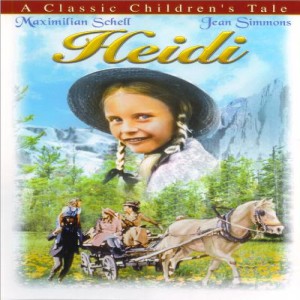
Wednesday Apr 24, 2019
Episode 20 - Heidi
Wednesday Apr 24, 2019
Wednesday Apr 24, 2019
A few years after he decided to leave a lucrative career writing music for television, John Williams returned to the small screen in 1968 with "Heidi." Though the film is infamous now for its interruption of a major professional football game, it has many great moments for Williams in terms of writing lush melodies to depict the young girl's maturation during her time in the Swiss Alps. From a smart comedic theme to a main theme so lyrical there was a song created from it, Williams' work deservedly did not go unnoticed at the time. Host Jeff Commings brings you some of the best moments from the score, including a love theme that got only one moment to shine.

